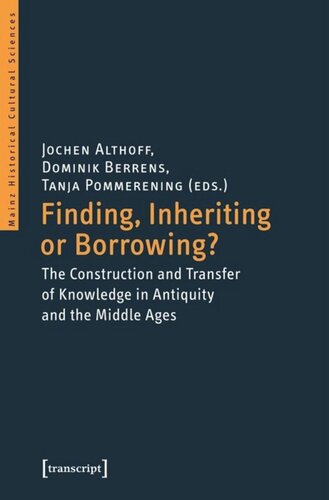

Most ebook files are in PDF format, so you can easily read them using various software such as Foxit Reader or directly on the Google Chrome browser.
Some ebook files are released by publishers in other formats such as .awz, .mobi, .epub, .fb2, etc. You may need to install specific software to read these formats on mobile/PC, such as Calibre.
Please read the tutorial at this link: https://ebookbell.com/faq
We offer FREE conversion to the popular formats you request; however, this may take some time. Therefore, right after payment, please email us, and we will try to provide the service as quickly as possible.
For some exceptional file formats or broken links (if any), please refrain from opening any disputes. Instead, email us first, and we will try to assist within a maximum of 6 hours.
EbookBell Team

4.0
6 reviewsThe creation and justification of knowledge in antiquity and the Middle Ages gives rise to several questions: How is `foreign' knowledge given authority? What are the mechanisms of legitimation? Are the ascriptions by the sources concerning the origin of knowledge as either inherited or borrowed traceable and comprehensible or artificial and unfounded? Does transferred knowledge create new concepts during the act of borrowing?
To answer these questions, the volume is divided into three parts: After a section on theoretical and methodological considerations, two thematic sections deal with a special field of knowledge, i.e. on concepts of the moon and of the end of the world in fire.